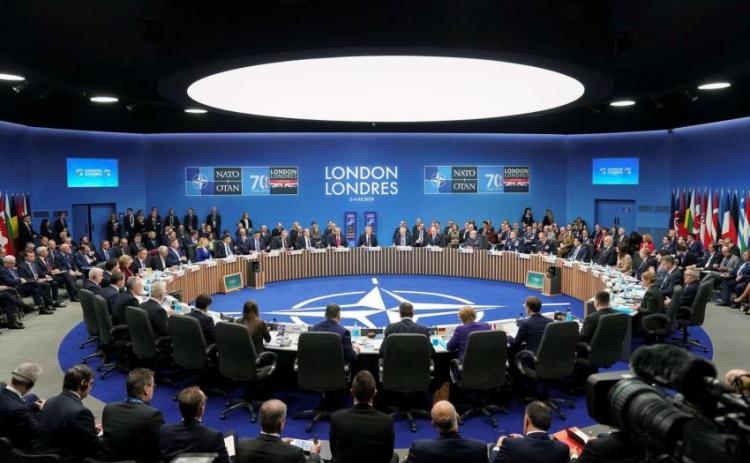Turkey’s role in Syria is the latest dispute with NATO – Scholar
Ein Issa – North-Press Agency
In its 70th anniversary, the NorthernNorth Atlantic Treaty Organization (NATO) is facing geopolitical, geo-economic and geo-strategic challenges in light of the international changes, especially the rise of China and the return of Russia to play a role in the international arena, said Scholar Edmund Ghareeb, the professor at George Washington University's Elliott School of International Affairs.
“Now, the NATO is like an organization that has lost its compass," Edmund Ghareeb said in an interview with North-Press, adding that the NATO is looking for a role, and is facing challenges at the same time. Professor Ghareeb drew attention to the emergence of a populist right-wing force in Europe and to some extent in the United States, which he believes that the interests of their countries must be put first, prior to the ones of the Treaty as a whole.
"This has also emerged recently with Turkey, which bought Russian weaponry and was considered by the United States and some NATO member-states that it contradicts the NATO objectives," he said.
Professor Ghareeb believes that the Europeans and Turks disputes, may be the most important and most recent dispute among the differences within the North Atlantic Alliance, on the role of Turkey in Syria and on refugees, as Turkey hinted to open its doors for refugees to flow into Europe. in addition, the ongoing conflicts in the Eastern of the Mediterranean to explore the oil. And the threats that some neighboring countries, including Cyprus, Greece and Egypt, especially after the agreement between the Libyan Government of National Accord and Turkey, to define their maritime borders to explore the oil, that this threatens their security and their rights.
“We see significant contradictions between the countries in the Treaty, especially recently between Germany and the United States, and between France and the United States regarding the issue of the North Stream, which transports Russian gas into Europe via the Baltic Sea and not only through Ukraine," he added.
He explained that disagreements have re-emerged with President Macron's statements that Europe must be self-reliant, and that a European force must be built to defend Europe's security and interests. Professor Ghareeb also stressed that the United States has always tried to preserve the NATO, the U.S. role, the survival of the Treaty and the United States as its leader, "by giving it a role outside the traditional framework or European and North Atlantic geography to expand to other regions, not only to Eastern Europe, when new countries joined Eastern Europe, which the Soviet Union agreed to withdraw from, and although there were promises to the Soviet Union that the NATO would not expand to the east, and that if the Soviet Union agreed to reunite Germany and dismantle the Warsaw Pact, Russia had nothing to fear as the pact won't further expand to the east.”
“What happened is just the opposite. The Treaty expanded and even included former republics in the Soviet Union," Dr. Ghareeb added.
“Then in 2008, we saw a move by the Europeans and the United States to include Ukraine and Georgia into the Treaty. This move, of course, worried and frightened Russia, which had a different new leadership. It saw these moves as a siege on Russia and a threat to its internal security, therefore, we have seen two wars in Georgia, a conflict and a coup in Ukraine," Dr. Ghareeb said.
In conclusion, the professor of international relations, Edmund Ghareeb told North-Press that there are profound contradictions within the NATO, but this does not mean, in his opinion, the end of the Treaty, because there are still interests of the parties to maintain. "The objectives for which the Treaty was set, which Lord Ismay (General Hastings Lionel Ismay) had mentioned, was to keep the Soviet Union out, keep the United States in Europe, and keep Germany weak," he said.
“Nevertheless, these are no longer goals, especially keeping the Soviet Union away from the Western Europe, as all these changes will impose themselves, but I think we will witness a new research and perhaps new alliances on the international scene, especially the European one and in relations between the NATO allies," he noted.

